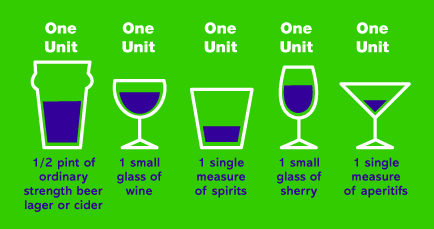Alcohol is a legal and socially acceptable drug. We recognise that drinking can be healthy, enjoyable and sociable.
So why do we need to know about how alcohol affects women? Because more women are drinking and alcohol abuse amongst women is growing.
Women’s Reaction to Alcohol
- Women are on average smaller than men and their bodies contain proportionally less water, so they can tolerate less alcohol prior to damage to their organs.
- Alcohol has a smaller volume of distribution in women because of fatty tissue which diffuses the blood supply more slowly and so a woman’s blood/alcohol level peaks quicker than a man’s. This will affect the speed it takes for a woman to get drunk.
- Women seem to be more vulnerable to some of the effects of alcohol than men. Some studies have shown that women suffer the psychological effects of alcohol dependence – confusion, intellectual impairment, loss of self control, earlier than men.
- Drink affects women differently at various stages of the menstrual cycle. This is probably because the body tissues at some of these times are ready to retain water. If there is alcohol present it will stay in the body longer, possibly causing severe liver damage in a comparatively short time.
- It particularly affects women during pre-menstrual or ovulatory phases as the concentration of alcohol in women’s blood will be higher and stay in the body longer.
- Alcohol and Pregnancy. It can be dangerous to drink too much during pregnancy as alcohol passes through the placenta into the foetal bloodstream. If you are planning to become pregnant it is a good idea to start thinking about your alcohol intake a couple of months in advance. Safe limits of drinking when pregnant: 1-2 units per week.
- Contraception. If you are taking the pill, alcohol will be retained in the body longer as the pill slows up the rate the liver metabolises alcohol. Drinking when trying to conceive can cause difficulties.
Alcohol and other Drugs
Alcohol reacts with a wide range of other drugs which can cause problems:
- Alcohol and aspirin affects the stomach
- Alcohol and antibiotics reduce the amount of vitamins in our bodies
- Alcohol and barbiturates are very dangerous and easy to overdose. Combined they make each other stronger.
- Alcohol and tranquillisers also make each other stronger and tranquillisers are very addictive.
- G.P.s are generally more likely to diagnose women as suffering from a psychiatric disorder than from a drink problem.
Stereotyping
There are still double standards in our society. The man who drinks heavily is often accepted whilst the same behaviour in a woman is not.
As a result women often feel greater guilt and shame as they are labelled as bad mothers and wives, neurotics and inadequate, which in turn leads to lower self-esteem and worth. Consequently women are less likely to seek help and more likely to become seriously ill before the problem is recognised.
Safety levels
Some drinks are stronger than others, depending on the amount of alcohol in them. The upper safe limit for womens’ drinking is reckoned to be approximately 14 units a week.

It takes the body 1 hour to eliminate 1 unit of alcohol.
